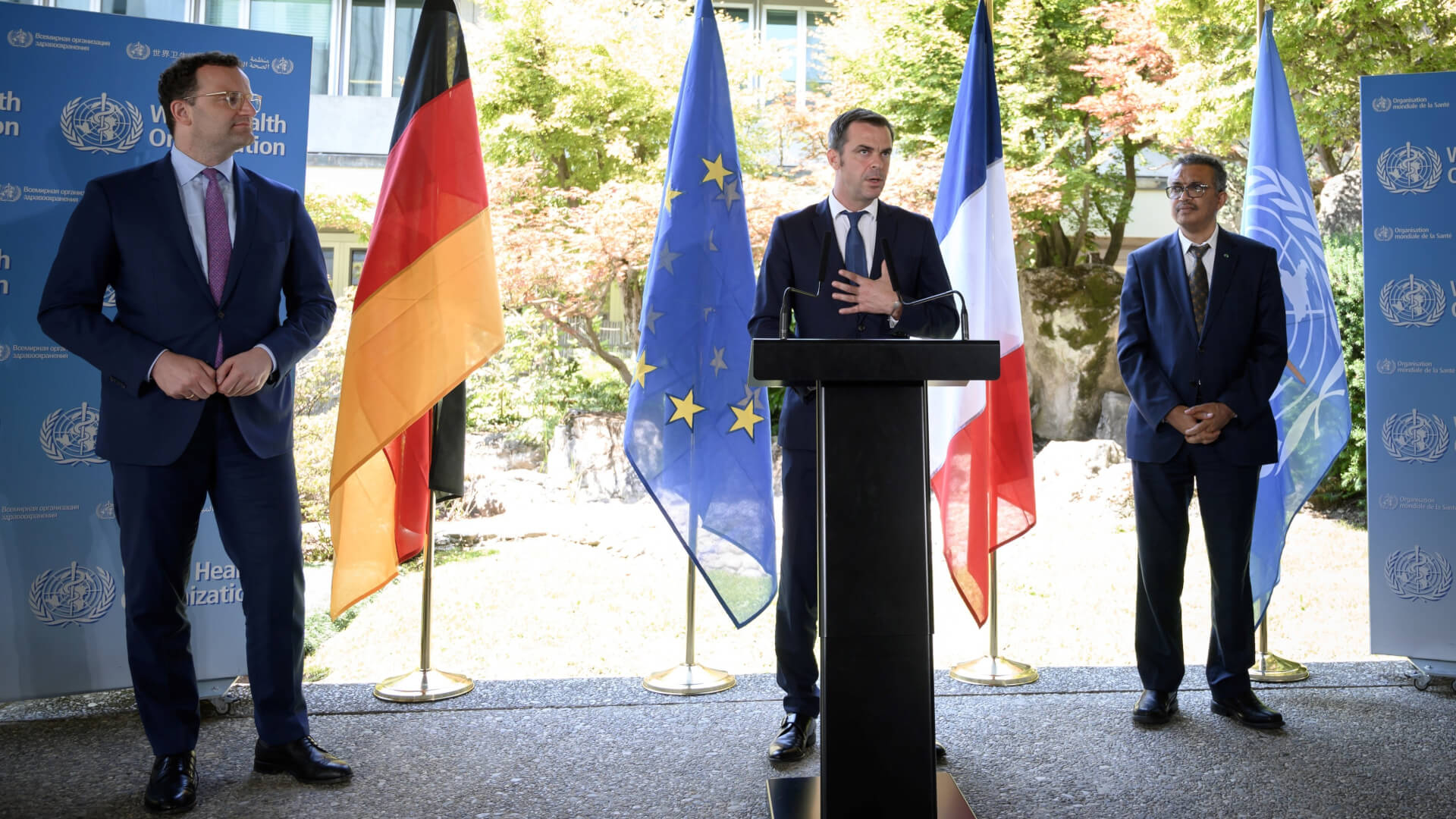Germany and France announced their decision to increase their financial, technical, and political support to the World Health Organisation (WHO). While Germany has pledged about $560 million, France has promised $156 million, of which $100 million will go towards a WHO research facility in France. However, Germany said that its contribution “comes with the clear expectation that remaining challenges are adequately addressed and needed reformed are pushed forward.”
The WHO chief said, “We are getting today all the support we need, politically and financially. Both Germany and France are long-standing friends of WHO and global health.” The WHO is entirely dependent on the fees and donations from its members for financial support.
The decision to increase the financial support offered to the WHO comes amidst warnings by the organisation following the upsurge in cases in Europe. The WHO believes that this could cause the healthcare systems in the continent to be “pushed to the brink” again. The Regional Director of the WHO, Dr. Hans Henri Kluge, said, “In several countries across Europe this risk has now become a reality – 30 countries have seen increases in new cumulative cases over the past two weeks.” He added, “in 11 of these countries, accelerated transmission has led to very significant resurgence.”
Both France and Germany have expressed the need for a multilateral approach to the pandemic. Jens Spahn, Germany’s health minister, said, “Isolated national answers to international problems are doomed to fail.” Similarly, France’s health minister, Olivier Veran, noted that the pandemic highlighted the need for a “global answer”, which can only be provided by a multilateral organisation like the WHO.
The two European nations have also argued for a collaborative approach for the post-pandemic economic recovery within the European Union. The French-German duo agreed to a 500 billion euro recovery plan that essentially permits the European Commission to borrow from member states and distribute the finances as grants. This agreement proved to be a crucial milestone in negotiations, as the support of France and Germany, the two biggest members of the EU, is necessary to broker such expansive deals in the bloc.
Also Read: “Frugal Four” Counter a 500 Billion Euro France-Germany Recovery Plan
Recognising the importance of a joint effort to fight against the devastation caused by the pandemic, German Chancellor Angela Merkel said that the COVID-19 outbreak in Europe showed “how fragile the European project still is.” She said, “The first reflexes, including our own, were rather national and not entirely European. This was, as good as some reason may have been, above all unreasonable. A global pandemic requires joint international action and mutual support.”
The support for the organisation comes amidst criticism from American President Donald Trump, who decided to halt American donations to the “China-centric” WHO. However, no formal communication has been made to the WHO about this decision. A European Health official said that the European governments are in talks with the US on reassessing the WHO’s functioning to address the concerns of the American President. The United States is the largest overall donor to the WHO, contributing more than $400 million in 2019, roughly 15% of the organisation’s budget.
Also Read: Trump Freezes WHO Funding Over Handling of COVID-19 Outbreak
Image Source: NPR

